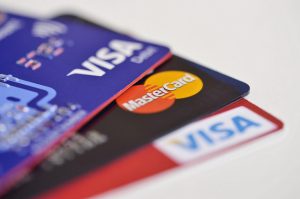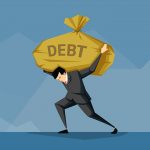Applying for your first credit card? Whether you have been putting off getting a credit card for years or you have recently landed your first full-time job, a credit card is a big commitment which shouldn’t be taken lightly.
If you are considering taking the plunge into the world of credit cards, there are some things you need to know to help you understand credit cards better and avoid paying hefty interest rates and fees.

Here are some terms you should get to know before choosing your first credit card suited to you.
Purchase interest rate
This is the amount that a financial institution charges you when you make a purchase. Before choosing your first credit card, compare credit cards online to find one that offers a low interest rate so you can avoid paying more in interest charges.
Cash advance interest rate
This is the amount of interest a financial institution will charge you for making cash withdrawals. This is usually at a much higher interest rate than purchases and there is usually no interest-free period so you are charged interest from the moment the money is withdrawn. With your very first credit card, it is best to avoid making cash withdrawals if you don’t need to.
Annual fees
Some financial institutions charge annual fees to use their service which are debited from your credit card account or added to your bill each year. When looking for a credit card, it may be useful to compare cards on the required annual fee to ensure that you are paying a competitive rate.
Interest free period
An interest-free period is the time frame in which you do not pay any interest on purchases. Each card offers different interest free periods but the common period is usually 25 days. To avoid paying interest, take advantage of this time and pay for your purchases before the interest-free period ends.
Credit limit
This is the total limit set on your card. For a first credit card it is better to opt for a low limit like $5000. The lower the limit the more control you have over your card, the less money you have to pay back and the more chance you have of controlling your balance. Some people with a higher credit card limit are tempted to spend it all and get stuck in a cycle of increasing debt due to interest rates.
Minimum payment
A minimum payment is the smallest amount you are required to pay on your credit card bill. Minimum payments are usually around 3 percent of the balance so if you were to pay the bare minimum each month it could end up taking decades to pay of your balance. Pay more than the minimum required or better still try and pay the balance in full to save on interest charges.
Rewards Programs
Some credit cards are part of rewards programs offered by providers where you can earn points for spending money on your card. these points can be used for a range of things depending on the program including flights and hotels for your next trip away. It is important to weigh up the benefit of these rewards against their fees and interest rates when deciding if these cards are for you. Credit Card Comparison tool is a good place to start looking at these types of cards.
Always read the product disclosure statement which shows a full list of fees and charges before signing on the dotted line.
Be careful about maxing out credit cards
If you are maxing out your first credit card, don’t buy new stuff. With Carousell, Amazon, thrift shops, garage sales and even exchanges with friends and neighbors, there is often no need to buy items that are brand new. If you really need something, any of the above are good options, as is Facebook Marketplace.
Bartering is another option to access goods and services without laying out cash or taking on more debt. You can barter your skills or trade with someone else for access to their skills. For instance, a hairdresser could trade haircuts for accounting services or a contractor could barter remodeling a bathroom for a new website with a Web designer. Some apps can help you to trade unwished things easily and fast. You will do it not for money but for goods you want to have. You can barter not only thing you don’t use anymore but your free time and skills as well.
In tough times, relying on your relatives and friends for moral support can make a big difference. Getting together with friends or relatives over a potluck dinner or coffee pot can save money that would otherwise be spent on expensive dinners. If you are in financial trouble, cutting out all the extras may bring your spending in line with your income and you should start by tracking expenses, writing down everything that you are spending for two weeks to a month because that will give you a clear picture of what you are spending.
If you are searching for your first credit card or for personal loan, it is good to speak with loan consultants. They can set you up on a path that can get you a it in a quick and seamless manner. Good loan consultants have close links with the best lenders in town and can help you compare various cards and loans and settle for a package that best suits your needs. You should also find out about money saving tips.






